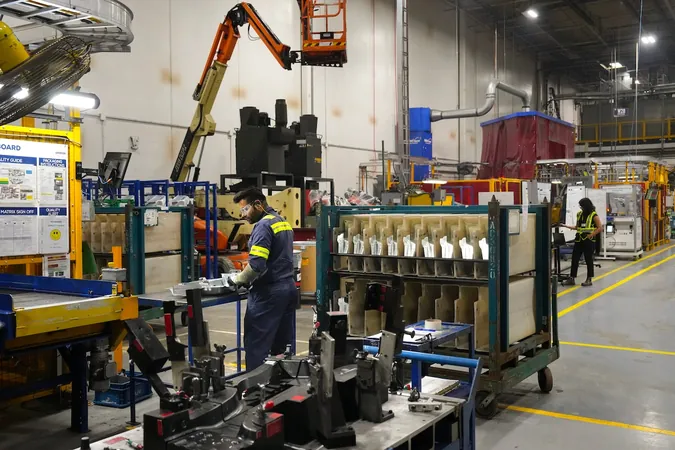
Auto Industry: The Real Economic Powerhouse Compared to Canola, Says Ontario Think Tank
2025-09-04
Author: Michael
The Battle for Economic Supremacy: Auto vs. Canola
In a heated economic debate, an Ontario think tank is challenging claims made by Saskatchewan Premier Scott Moe that the canola industry in Canada surpasses the auto sector in economic contributions. This clash comes amid calls for Prime Minister Mark Carney to reconsider hefty tariffs on Chinese electric vehicles, which are seen as necessary to protect Canada's automotive industry.
Pressure Mounts on Prime Minister and Provinces
Moe's assertions, echoed during recent media discussions, have sparked tensions between canola farmers and automotive advocates. While canola farmers argue that their livelihoods are being sacrificed for the sake of the auto industry, the Trillium Network for Advanced Manufacturing is now pointing out that the figures used to advocate for the canola sector may be inflated.
Canola's Economic Claims Under Fire
A study from the Canola Council of Canada touted the canola industry's economic impact at a staggering $43.7 billion and supporting over 206,000 jobs. However, the London-based Trillium Network challenges this, suggesting that the indirect benefits from canola have been exaggerated. Managing Director Brendan Sweeney stated that while Moe cites these statistics, the reality paints a different picture.
The Statistics Tell a Different Tale
According to Statistics Canada, the auto sector contributed approximately $19.2 billion to Canada’s GDP in 2024, directly employing over 118,000 individuals. In contrast, canola's direct contribution was reported at around $5 billion with around 21,576 jobs, primarily concentrated in the Prairie provinces.
The Economic Impact Beyond the Numbers
Sweeney emphasizes that both industries extend their impact beyond direct statistics—supporting local jobs and suppliers. However, he cautions against including economic activities that aren't directly related to the industries, which the canola impact study allegedly does.
A Unified Front? Not Quite!
In response to the criticism, Chris Davison, president of the Canola Council of Canada, defended the economic report, pointing out that it was designed to demonstrate both direct and indirect benefits, including community impacts from spending.
Canola's Rising Competition
Furthermore, the dynamics might shift as Australian canola re-enters the competitive Chinese market, posing a significant threat to Canada’s dominance in the space.
Conclusion: Who Will Prevail?
As Ontario debates how to navigate this economic tug-of-war, the fate of both the automotive and canola industries hangs in the balance. With policymakers and advocates sharpening their arguments, one thing is clear: the economic landscape is more competitive than ever, and both sectors will need to prove their worth.









 Brasil (PT)
Brasil (PT)
 Canada (EN)
Canada (EN)
 Chile (ES)
Chile (ES)
 Česko (CS)
Česko (CS)
 대한민국 (KO)
대한민국 (KO)
 España (ES)
España (ES)
 France (FR)
France (FR)
 Hong Kong (EN)
Hong Kong (EN)
 Italia (IT)
Italia (IT)
 日本 (JA)
日本 (JA)
 Magyarország (HU)
Magyarország (HU)
 Norge (NO)
Norge (NO)
 Polska (PL)
Polska (PL)
 Schweiz (DE)
Schweiz (DE)
 Singapore (EN)
Singapore (EN)
 Sverige (SV)
Sverige (SV)
 Suomi (FI)
Suomi (FI)
 Türkiye (TR)
Türkiye (TR)
 الإمارات العربية المتحدة (AR)
الإمارات العربية المتحدة (AR)